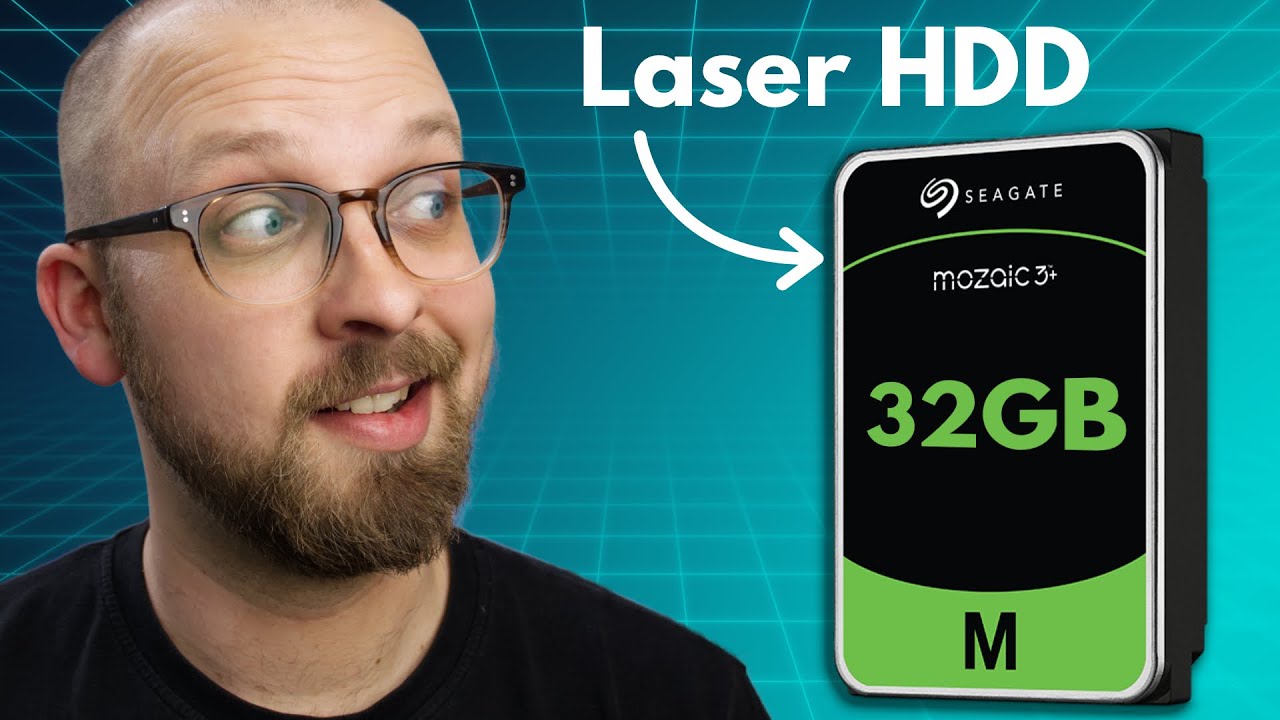Seagate has introduced a revolutionary hard drive technology called Heat Assisted Magnetic Recording (HAMR), which allows for faster data storage and retrieval, with new drives capable of storing up to 3 terabytes on a single platter and plans for a 32 terabyte unit. In other tech news, Lenovo is set to unveil a new handheld console at CES, while TP Link faces potential U.S. bans due to security vulnerabilities, alongside various product releases and updates from companies like Nvidia, LG, and Intel.
In this week’s tech news, Seagate has unveiled a groundbreaking advancement in hard drive technology called Heat Assisted Magnetic Recording (HAMR). This innovative approach utilizes nanophotonic lasers and quantum antennas to heat small areas of the disk, allowing for faster data storage and retrieval. The new drives maintain 95% of the same internal components as traditional hard drives but can now store up to 3 terabytes on a single platter, doubling previous capacities. Seagate plans to launch a 32 terabyte unit soon, with future models expected to reach 4 to 5 terabytes, marking a significant leap forward for data centers and storage solutions.
In gaming news, Lenovo has announced a special event at CES where they will reveal the successor to their Legion Go handheld console. This new device may run on Steam OS, indicating a potential shift towards Linux-based gaming. Valve’s involvement suggests that Steam OS could become a standard for handheld gaming, which could encourage developers to optimize their games for this platform. Additionally, Microsoft’s VP of Next Generation Xbox will also attend, hinting at possible collaborations or announcements related to gaming on handheld devices.
On a more concerning note, TP Link, a popular router manufacturer, may face a ban in the U.S. due to security vulnerabilities in their devices. Reports indicate that multiple U.S. departments are investigating TP Link for not addressing security flaws promptly, which has led to concerns about cyber security. The company has seen a significant increase in market share, but the potential ban could impact their popularity, especially among consumers who appreciate their award-winning products. The situation is complicated by the fact that TP Link devices have reportedly been exploited by state-sponsored hackers.
In product releases, Nvidia has introduced the Jetson Orion Nano, aimed at AI hobbyists, while Elevation Lab has launched a Time Capsule that extends battery life for AirTags. The Framework Laptop 16 now features a modular gadget for quadruple SSDs, and Blackmagic has released an immersive camera priced at nearly $30,000. For those looking for luxury, LG has unveiled the world’s first transparent OLED TV, retailing for $59,999, alongside a high-end G-Shock watch priced at $8,000.
Lastly, the video concludes with updates on various tech developments, including Apple’s decision to abandon its iPhone hardware subscription service and the upcoming launch of Lenovo’s rollable display laptop. The EU has signed a deal for a Starlink rival, while Intel claims to have resolved performance issues with its Arrow Lake chips. Additionally, Robo taxis are set to debut in Tokyo, and Motorola faces a potential U.S. market ban due to patent disputes. The video wraps up with an announcement of a live show planned for the following week, along with a promotion for Nebula gift cards, encouraging viewers to explore educational content.
